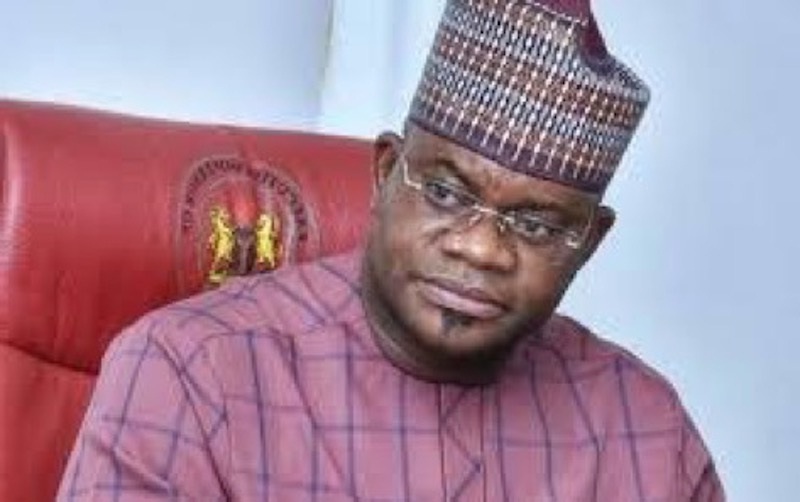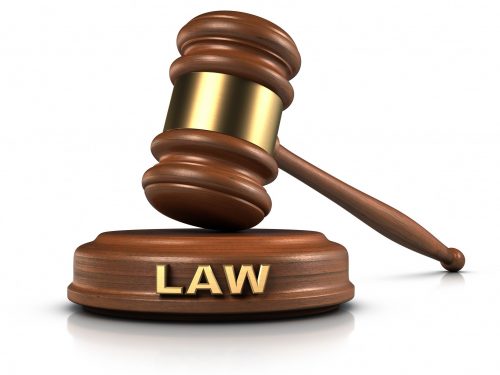JUDICIARY
Tendering Fresh Evidence at Supreme Court is Herculean Task–Erokoro, SAN

A legal luminary, Mr Paul Erokoro, SAN, says tendering additional evidence at the Supreme Court is an uphill task that requires a great deal of effort.
According to him, the rules admitting fresh evidence at the Supreme Court are very stringent.
Erokoro made the remark on Sunday in Abuja in an interview on the type of evidence that can be admitted at the Supreme Court.
He said the general rule is that additional evidence is not encouraged at the apex court.
“The general rules is that additional evidence at the Supreme Court or any Court of Appeal is not encouraged at all, but that doesn’t mean that it is totally forbidden.
“However, the rules for admitting it are very stringent.
“The first is that such evidence is going to be extremely material to the resolution of the issues in the case. That’s one of the hurdles to be crossed.
“The second hurdle is that such evidence could not have been procured during the trial at the trial court by reasonable diligence.
“So it is either the evidence was not available at the time of the trial or it could not, by any kind of due diligence or any reasonable effort, be made available.
“For evidence to be admissible at the Supreme Court or in any Court of Appeal, it has to, at a very minimum, satisfied those two conditions,” he said.
On whether there are provisions in the constitution allowing a party to tender additional evidence at the apex court, the senior lawyer said: “Most of these rules are case laws and the Evidence Act does not specifically make these provisions.”
He stressed that it is only backed by the rules of the court.
“In the case of election petition, the constitution requires that the proceeding be concluded within 180 days at the election tribunal which, in the case of the presidential election, is the Court of Appeal.
“So the Court of Appeal which may have power to admit additional evidence cannot have any jurisdiction if the jurisidtcion of the trial court has expired.
“For instance, if a Court of Appeal has within six months to hear and conclude a presidential election matter and the six months have expired, even if the Supreme Court wanted to admit an additional evidence, it doesn’t seem to me that it would be able to admit such evidence after the expiration of the six months,” he said.
According to him, if such evidence becomes available, it is very likely that it cannot be admitted on appeal.
“This is because it may not meet the jurisdictional requirement which is that a court which has jurisidtcion to do it, will it have done it at this time?
“And if the period available for the trial court has expired, there is nothing the Appeal Court, in this case, the Supreme Court, can do,” he said.
Erokoro said that the Supreme Court or any appellate court in the country had 60 days within which to hear and conclude election matters.
He said even though the Supreme Court has jurisidtcion to hear the appeal, it would have jurisdiction only in relation to the appeal.
“The fact that the Supreme Court has only two months within which to hear the appeal will not revive the jurisdiction of the trial court,” he added.
On whether there is a period within which a Supreme Court can admit additional evidence, Erokoro said: “Except when it is dealing with matters that have come before it under its original jurisidtcion, the Supreme Court doesn’t, generally, admit evidence.
“It is an appeal court and its function is to see whether the matter was properly tried at the trial court, and not to admit additional evidence.
“It’s just that there are few exceptions to the rules regards that and those exceptions, I have already explained to you.
“But outside that, the Supreme Court, generally, doesn’t like to admit additional evidence because it is not fair to the trial court which did not hear that.
“Two, you will not give the other party the chance to, maybe, gather evidence that could have contradicted that one.
“So that is why the rules are very strict and that’s why you don’t see it happening all the time.”
He said though the move could succeed, he described it as “an uphill task.”
When asked about grounds that an already decided case can be reviewed at the Supreme Court, he said though the grounds are not determined by law, there are rules of trial that are universal in Nigeria.
“One of them is whether due process was followed, admissible evidence rejected or inadmissible evidence admitted, if trial court failed to act fairly to both sides, if the lower court made mistake as regard the law to be applied, etc.
“So there are so many possibilities that the grounds of appeal can be built around,” he said.
Erokoro said though it was reported in the media that Alhaji Atiku Abubakar, the Peoples Democratic Party (PDP)’s presidential candidate in the Feb. 25 poll, planned to file new evidence at the apex court, it was still in the realm of speculation.
“This is actually within the realm of speculation because I have not seen the evidence beyond what the press has reported and I don’t know whether those who issued the documents are prepared to come to court, otherwise, there is a risk of what is called, ‘documentary hearsay,’” he said.
NAN reports Abubakar on Friday sought the leave of the Supreme Court to bring in fresh additional evidence to prove that President Tinubu submitted a forged certificate to the Independent National Electoral Commission (INEC) in aid of his qualification for the presidential election.The documents Atiku sought to tender are Tinubu’s academic records, which were handed over to him by Chicago State University (CSU) on Monday, October 2, 2023.
The 32-page documents were released to the former Vice President on the orders of Judge Nancy Maldonado of the District Court of Illinois, Eastern Division, Illinois, U.S. (NAN)
JUDICIARY
Court Strikes Ex-Kogi Governor’s Bail Application

Justice Maryann Anenih o a Federal Capital Territory (FCT) high court on Tuesday struck out the bail application filed by former governor Yahaya Bello of Kogi.Anenih struck out the application on the grounds that it was filed when the former governor was yet to be taken into custody of the Economic and Financial Crimes Commission (EFCC).
The application was filed on Nov. 22, while the former governor was taken into custody of the anti-graft agency on Nov. 26 and arraigned on Nov. 27.(NAN)Details later….
JUDICIARY
5 Men Face N25m Worth of Milo Products Theft Charge

Five men, on Monday appeared before an Ota Magistrates’ Court in Ogun, for allegedly stealing a truck load of Milo products worth N25 million.The defendants, Temidire Ramon, 35, Aminu Yusuf, 26; Olusola Opadare, 35; Oludayo Adeleye, 38, and Amodu Jimoh, 51, are standing tial on a two-count charge of stealing and conspiracy.
The prosecutor, Insp E. O.Adaraloye, told the court that the defendants committed the offences on Oct. 13, 2020, at Agbara in Ogun.Adaraloye, said that the defendants conspired and stole a truck load of Milo products valued at N25 million, belonging to Nestle Company.He said that the offences contravened Sections 390(9) and 516 of the Criminal Code Laws of Ogun, 2006.They, however, pleaded not guilty to the charge.The Magistrate, Mr O.A Onagoruwa, granted the defendants bail in the sum of N500,000 each with two sureties each in like sum.He ordered that the sureties must be gainfully employed and must reside within the court’s jurisdiction.Onagoruwa also ordered that the sureties must show evidence of tax payment to Ogun State Government.He adjourned the case until Dec.12 for hearing. (NAN)JUDICIARY
Court Grants Mother Custody of 2 Children

A Grade 1 Area Court, Kubwa has granted Maryam Muhammad custody of two children from her former husband, Bashir.
The judge, Musa Sabo ordered Bashir to pay Muhammad N175,000 for a self contained apartment in arrears following the plaintiff’s claim of already paid rent.
Sabo added that Bashir should secure a self contained apartment or pay the plaintiff N250, 000 annually for accommodation.
He said that the children would spend first and third term holidays with their father and second term holidays with their mother.
The judge said the father could pick his children up every weekend for outings within 10a.m to 6.pm from the mother and notify her before hand.
He also ordered him to pay outstanding school fees if any and pay the plaintiff arrears for the fees she claimed to pay after verifying same as she failed to prove it.
Sabo ordered Bashir to pay N40,000 from October 2023 To February 2024 and subsequently pay N45,000 monthly for the children’s upkeep..
Regarding the children’s medication, he ordered Bashir to make an arrangement based on his financial capability.
Earlier, the plaintiff approached the court for custody of her children, maintenance, Islamiyya school fees, enrollment of one of the children in a special needs school and transportation.
She also sought for Bashir to refund N770, 000 which she paid for her house rent with the children and pay for the medicals of the children.
Bashir however said his ex-wife paid the rent without his consent adding that he is a civil servant and not financially capable.
“I do not earn up to N2 million annually and I am currently paying N600,000 rent annually. My children are already under the National Health Insurance Scheme (NHIS),” he said.(NAN)




















